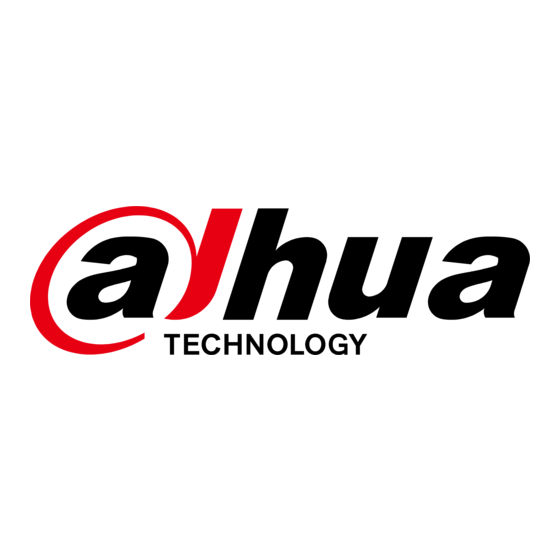
Table of Contents
Advertisement
Quick Links
Advertisement
Table of Contents

Summary of Contents for Dahua ASR1102A-D-V3
- Page 1 Access Reader User's Manual V1.0.1...
-
Page 2: Foreword
Foreword General This manual introduces the functions and operations of the Card Reader. Read carefully before using the device, and keep the manual safe for future reference. Safety Instructions The following signal words might appear in the manual. Signal Words Meaning Indicates a high potential hazard which, if not avoided, will result in death or serious injury. - Page 3 ● There might be errors in the print or deviations in the description of the functions, operations and technical data. If there is any doubt or dispute, we reserve the right of final explanation. ● Upgrade the reader software or try other mainstream reader software if the manual (in PDF format) cannot be opened.
-
Page 4: Important Safeguards And Warnings
Important Safeguards and Warnings This section introduces content covering the proper handling of the Card Reader, hazard prevention, and prevention of property damage. Read carefully before using the Card Reader, and comply with the guidelines when using it. Transportation Requirement Transport, use and store the Card Reader under allowed humidity and temperature conditions. - Page 5 ● Do not drop or splash liquid onto the Card Reader, and make sure that there is no object filled with liquid on the Card Reader to prevent liquid from flowing into it. ● Do not disassemble the Card Reader without professional instruction.
-
Page 6: Table Of Contents
Table of Contents Foreword ........................................I Important Safeguards and Warnings ............................III 1 Product Overview ....................................1 1.1 Introduction ....................................1 1.2 Dimensions ....................................2 2 Wiring and Installation ..................................3 2.1 Ports Overview .................................... 3 2.2 Installation Procedure ................................3 3 Updating the System .................................. -
Page 7: Product Overview
1 Product Overview 1.1 Introduction In most access control systems, an access control card reader is a security system that requires a swipe of a credential card to verify the person entering the room/space is cleared. It is suitable for a wide variety of scenes such as office buildings, schools, compounds, communities, factories, public venues, business centers and government buildings. -
Page 8: Dimensions
1.2 Dimensions Figure 1-1 Dimensions of card reader (unit: mm[inch]) -
Page 9: Wiring And Installation
2 Wiring and Installation 2.1 Ports Overview Table 2-1 Ports overview Color Port Description 12 V Power supply Black Alarm output signals(for Blue ALARM_OUT Wiegand card reader) White Wiegands transmission signals (for Wiegand card Green reader) Wiegand responsive signals Brown LED/BELL_CTRL (for Wiegand card reader) Yellow... - Page 10 Figure 2-2 Drill holes (unit:mm[inch])
-
Page 11: Updating The System
3 Updating the System 3.1 Updating through SmartPSS Lite Prerequisites ● The Card Reader was added to the access controller through RS-485 wires. ● The access controller and Card Reader are powered on. Procedure Step 1 Install and log in to SmartPSS Lite, and then select Device Manager. Step 2 Click Figure 3-1 Select the access controller... -
Page 12: Appendix 1 Cybersecurity Recommendations
Appendix 1 Cybersecurity Recommendations Mandatory actions to be taken for basic equipment network security: 1. Use Strong Passwords Please refer to the following suggestions to set passwords: ● The length should not be less than 8 characters. ● Include at least two types of characters; character types include upper and lower case letters, numbers and symbols. - Page 13 minimum set of permissions to them. 9. Disable Unnecessary Services and Choose Secure Modes If not needed, it is recommended to turn off some services such as SNMP, SMTP, UPnP, etc., to reduce risks. If necessary, it is highly recommended that you use safe modes, including but not limited to the following services: ●...


Need help?
Do you have a question about the ASR1102A-D-V3 and is the answer not in the manual?
Questions and answers